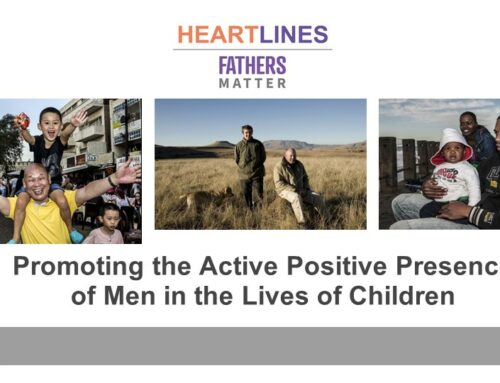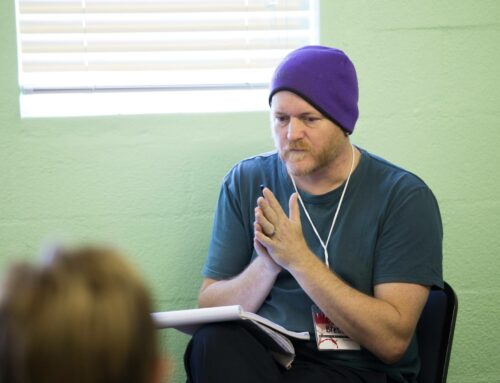Race is one of the big issues we are dealing with in South Africa [and in Americaland, and most probably in pretty much every other country in the world, right?] and there is still a lot of work to be done.
The idea of this series came from my understanding that most of us have some kind of racism or prejudice towards other people, particularly those of other cultures or race – some are quite overt and others are more subtle – something that is obvious to you might be a blind spot for someone else… and sometimes until we know, we don’t know… so i am thinking this will be a light Dummies Guide to being Less Racist for those of us desperately trying to be so.
A more obvious example might be referring to your fifty year old gardener as ‘boy’ and a less obvious example might be something like ‘asking to touch someone from another race’s hair’ – this might overlap with the ‘what i would love my white friends to hear’ series on my blog and i feel like it could really be helpful for us all to learn from.
We look at the big issues of racism and prejudice and they can sometimes feel completely overwhelming. But maybe a helpful place to start is with the smaller things some of us may not be aware of that we do or say on a regular basis.
Until you know, you might not know.
How can we help those around us to be one bit less racist? If you have an idea you’d like to share as part of this series, drop me an email at brettfish@hotmail.com and i can take a look.
Megan Furniss posts some helpful questions
Calling someone ‘boy’ or ‘girl’ when they clearly aren’t
Taking a step back from the small aspects to view the bigger picture
When we refer to a specific group of people as ‘they’ or ‘those people’








Hi. Thanks for your post. I think this is a very difficult topic to breach and you are brave for attempting it. I think it’s also extremely nuanced. I’d like to share my experience. I work as a therapist and I’ve always seen myself as non-racist, very much so. I’d written many blogs, taken many people on and was lucky to grow up in a household where my parents taught me that the colour of my skin or anyone else’s in no way defined us.
Thing is, living in South Africa, and the world, is a very anxiety-provoking experience. It has been for me. When we undergo any kind of trauma or threat, our biology helps us to try and identify or narrow down the threat and then in future prevent or avoid it. It’s very automatic and helps us in many cases, because our cognition is often too slow for an automatic response that could save our lives.
So two years ago I was held up at knife point on the mountain by two young coloured men. Now I did my master’s research with similar men around gangsterism, crime etc, interviewing 10 candidates and coming to understand their backgrounds. However, understanding how these young men came to the mountain with a knife pointed at me, in no way helped me to be less afraid. It also didn’t prevent me from developing an automatic response that says “young coloured men are something to afraid of”. Now I cannot climb Lion’s Head by myself, I’m scared to go jogging. I freeze when I’m alone in the street and a dark figure approaches, but I’m okay if they are white. This was not a conscious choice, this is my body trying to protect itself. I really want this to go away because it now just feels broken and like I live in fear all the time. If this wa a concsious choice, I would not have made it. I think a lot of what happens is subconscious, and even me bringing it into my conscious has not helped me. I feel very alone and afraid and anxious in this, because it’s something I cannot speak of. How does “I’ve become kinda racist” sound? I simply do not know how to change this automatic reaction. For instance, I’ve worked in Heideveld before, and since the incident I’ve been too afraid to go and volunteer because I’d stay up all night thinking about what can go wrong.
I’m not trying to justify it at all. I guess my point is that I feel very hopeless for us and for South Africa. I can understand how hundreds of Afrikaans white people on farms are terrified and somehow becoming racist feels that it makes them safer (even though it doesn’t) and I can understand how black people are very angry at us and sit with this suppressed rage at what we have and they don’t, even though this does not help either.
So maybe, if you find something that helps, let me know 🙂 Please
Hi there. Wow, thank you for sharing. i don’t really have words to directly address that experience i don’t think – i can not even imagine it and it does make sense when you have had a traumatic experience like that, that you would react in such a way. i guess this series is more aimed at those who haven’t been through such situations where the response is more automatic and have habits that are racist and may not know about it or realise. i would imagine you would need some strong counselling and healing [and as a Christ follower i would say prayer] to get through that and imagine it would be a long process rather than an event. Not knowing your situation this might already be a truth but i imagine that if you had coloured friends, especially man friends you can trust, that that would also help you as you train your body/mind in a way to react differently because of those examples you know to be safe. But like i said, yours is a much more complicated situation than is going to be helped with a series like this but really appreciate you writing in as i imagine there are many others who share similar experiences and struggle to stay positive or retrain their minds…
Hi. I had a fairly similar experience. My first mugging was 10 years ago. A knife to my throat, 3 black men. Second mugging, a similar demographic. 9 mugging attempts later and the demographic shifts slightly. The trauma was very difficult for my innocent teenage self – I remember being outraged that people had immediately wanted to know whether the attackers were black or coloured, and I’d insisted it didn’t matter. Then the irrational fear began. Whenever I’d see a group of 2 or 3 black men approaching me, my heart would race, I’d sweat profusely, and sometimes just freeze, or weep. The guilt was harrowing and for years I silently hated myself for being so racist. Now the panic attacks are less frequent, but the racism is almost gone. A couple of things helped. Firstly, I retrained my mind very slowly, speaking to it as simply as possible. I reminded myself often that many, many black men passed me on the street but VERY few were going to mug me. Simple mathematics. Initially I couldn’t walk down the street without panic attacks but I trained myself to do it in stages. First a few steps, then I could turn around, half way down the street, then all the way down the street. The denial and guilt didn’t help – because I then missed vital body language cues which could have prevented more muggings had I recognised them. I then became an expert at body language (and at this stage had been mugged by both coloured and black men, so my initial fear-based logic was flawed – thank goodness). Watching the body language of every single person who approached me becomes an armour. I now know what to fear and defend against – the posture, the words, the look in the eyes – and not the race of the person. After various abuses by white men, more secret, more subtle, but still traumatic – I realised that there were more logical clues I could count on. A primal language of dominance, anger and insecurity is spoken, in a moment, by all who have attacked me – the members of the Americans gang with a gun to my head, the privileged white advocate eroding my self-esteem, the young impoverished black man with a rusty kitchen knife. The language of fear that drives anger and puts us in danger is universal. Once I recognised and accepted that, my scared childish mind no longer needed to protect me by pointing out stupid racial differences. It takes a lot of work – I am by no means an expert. It takes practice every single day. But it is worthwhile because I have more love for and less fear of my fellow South Africans who share the streets I walk on.
Oh wow, thanks for sharing T, but so horrific that you have had to go through all of that – i am so sorry and long for a country we can build together where that is no longer something to be expected or even anticipated as all people work together to look out more for each other. Thanks for the tips though.
[…] [For a growing series of thoughts on how you can become one bit less racist, click here] […]
[…] [For the rest of this series on How to be One bit Less Racist, click here] […]
[…] [To view the journey so far, click here] […]
[…] [To catch the rest of this series, click here] […]